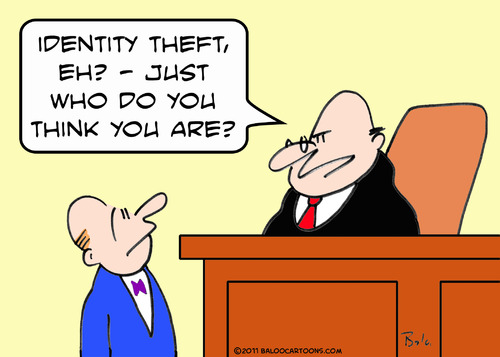4 WAYS THIEVES CAN STEAL YOUR IDENTITY
- Stealing your mail. If you don’t have a locking mailbox, thieves can swipe your mail directly from the box, especially if it’s located next to the road. Prevent this by opening a postal box. If your mailbox is attached to your house, be sure to check it daily. If you’re going out of town, have a neighbour pick it up for you or put a hold on service.
- Digging through your trash. Thieves have been known to search through trash to find personal documents. Prevent this by shredding your documents before you dispose of or recycle them.
- Tampering with, or “skimming,” ATM and credit card machines. If you use an ATM or other card reader, you may become a victim of identity theft and not realize it until you look at your account statement. Thieves have been using counterfeit card readers in tandem with hidden cameras to steal the information on ATM cards for several years. Once you slide your card into the reader and punch in your PIN, the thief has enough information to make another card. While more financial institutions are incorporating EMV chips into their debit and ATM cards, which make it more difficult to counterfeit a card, not all of them have converted yet. Reduce your risk by avoiding non-bank ATMs and monitoring your accounts for unauthorized activity.
- Searching through public sources. Although social media has made it easier to stay in touch with family and frie3nds, it can also be used by thieves to swipe personal information. Adjust the privacy settings on your social media sites so your information isn’t available to anyone you’re not connected to and isn’t immediately searchable.
What should you do if you’re the victim of identity theft?
- Report it.
- Document everything.
- Place a fraud alert on your credit cards.
- Review your credit report.
- Contact your creditors, financial institution, utilities and services.
Don’t be fooled by these common scams (email or internet):
- Services
- Prizes
- Extortion
- Merchandise
- Phishing
Canadians between the ages of 60-69 are the most targeted group by scammers.
Tips to Avoid being the Victim of a Scam
- Beware of claims that require immediate action.
- Beware of offers that require you to wire money or send a pre-paid card.
- Trust your gut – if you feel something is wrong or an offer sounds too good to be true, it’s probably a scam.
Ways to Protects your Child from Identity Theft
Since children are financial ‘blank slates,’ their information is an ideal target for thieves. Unfortunately, parents may not realize their child’s identity has been stolen until the child tries to open a bank account or apply for a job.
- Don’t give away their personal information, over the phone or online.
- Keep their identity documents, such as their birth certificate and Social Insurance Number, in a safe or locked filing cabinet.
- Teach your children to protect their personal information.
- If you suspect your child’s identity has been stolen, contact the police and credit bureaus.




